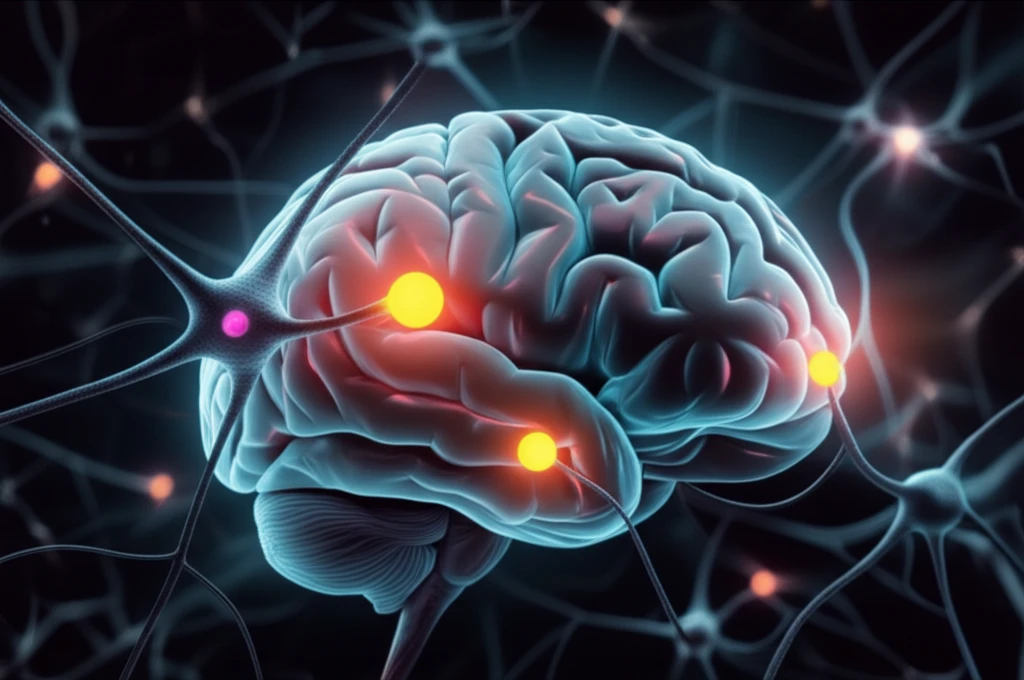
Unlocking Alzheimer's: Can Serotonin Hold the Key to Cognitive Clarity?
"Exploring the Role of Serotonin Receptors in Treating Cognitive Decline in Alzheimer's Disease"
Alzheimer's disease (AD) is a devastating condition marked by cognitive decline, memory loss, disorientation, and neuropsychological challenges. This progressive disease not only impairs cognitive functions but also leads to brain atrophy, particularly in the hippocampus and temporal cortex, areas vital for memory and learning.
Within these affected brain regions, the delicate balance of neurotransmitters is disrupted. Acetylcholine deficiency and glutamate hyperactivity have long been implicated in AD pathology. However, other neurotransmitters like dopamine, GABA, noradrenaline, and serotonin also play critical roles in the disease's progression and the manifestation of cognitive symptoms.
Current treatments primarily focus on managing symptoms by increasing acetylcholine levels or blocking glutamate activity. Serotonin's involvement in cognitive functions raises an important question: Could targeting specific serotonin receptors offer a new avenue for improving cognitive outcomes in Alzheimer's disease?
Neurotransmitter Imbalance: Understanding Serotonin's Role in Cognitive Decline

In Alzheimer's disease, the intricate communication network within the brain becomes disrupted. Neurotransmitter alterations, particularly in the hippocampus and prefrontal cortex, contribute significantly to cognitive impairment. These areas rely on a delicate balance of excitatory neurotransmitters like acetylcholine, dopamine, noradrenaline, and serotonin, and inhibitory neurotransmitters like GABA and glutamate.
- Dopamine: Alterations are linked to depressive and psychotic symptoms common in AD.
- GABA: Dysfunction at GABAA receptors contributes to cognitive deficits. Increasing GABA activity can prevent neuronal death and beta-amyloid formation.
- Noradrenaline: Levels initially increase but decline as the disease progresses. It can activate tropomyosin related kinase B (TrkB), offering a neuroprotective effect against beta-amyloid.
- Serotonin: Targeting specific receptors may hold promise for improving cognitive symptoms.
Serotonin-Targeted Therapies: A Promising Avenue for Alzheimer's Treatment?
Given serotonin's role in cognitive processes and its involvement in the disrupted neural networks of AD, researchers are exploring the therapeutic potential of targeting specific serotonin receptors. Several strategies are under investigation:
Tropisetron, with its alpha7 nAch agonistic and 5-HT3 antagonistic properties, prevents beta-amyloid formation and improves cognitive functions. 5-HT6 antagonists, acting in the hippocampus and prefrontal cortex, have shown promise in clinical trials for improving cognitive function in mild Alzheimer's disease. 5-HT4 agonists inhibit beta-amyloid formation and increase acetylcholine concentrations, offering potential therapeutic value.
The future of Alzheimer's treatment may involve a multi-faceted approach, combining traditional methods with novel serotonin-targeted therapies. Further research is needed to fully understand the potential of these strategies and to develop effective treatments that can improve the lives of those affected by this devastating disease.
